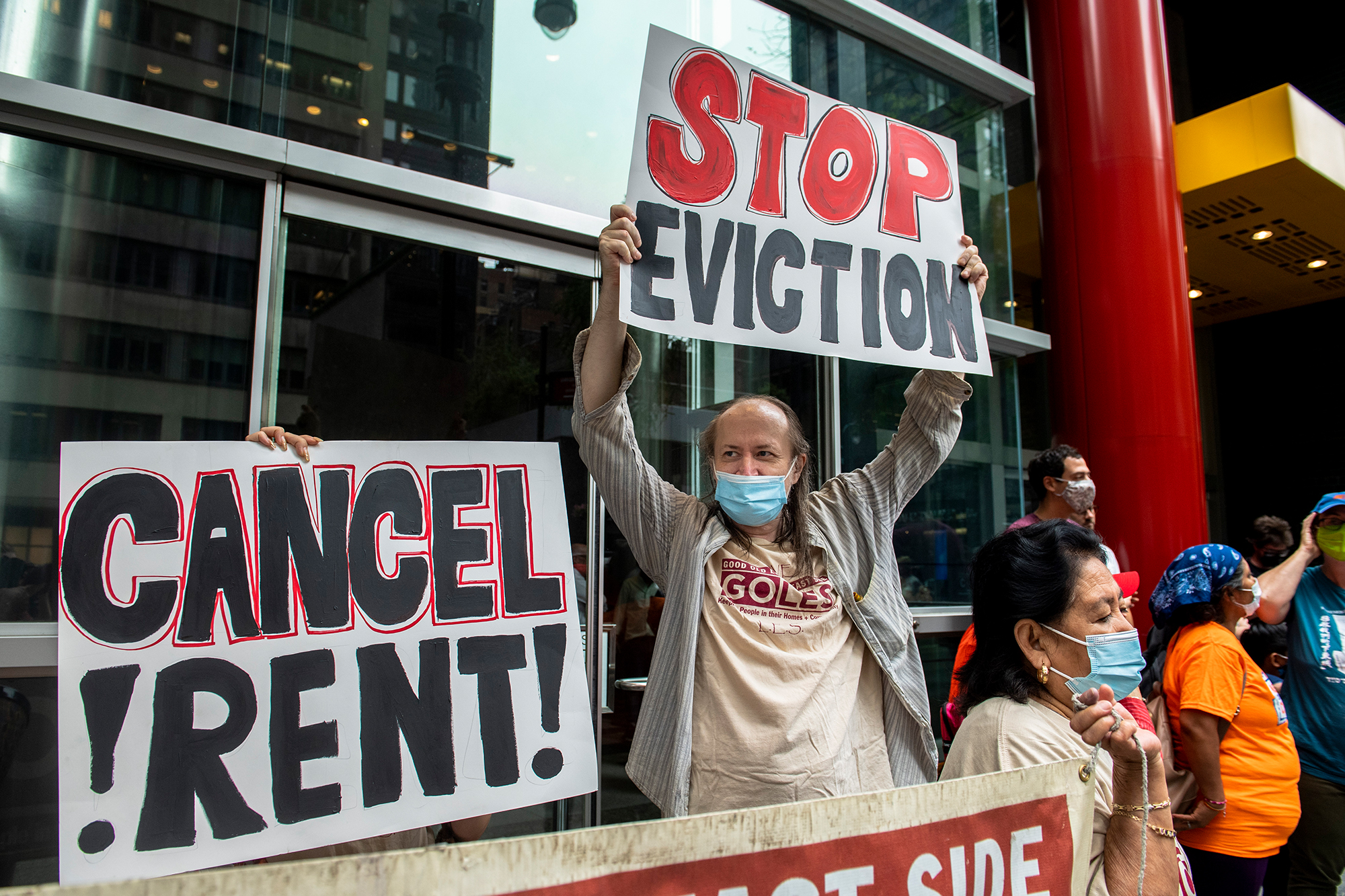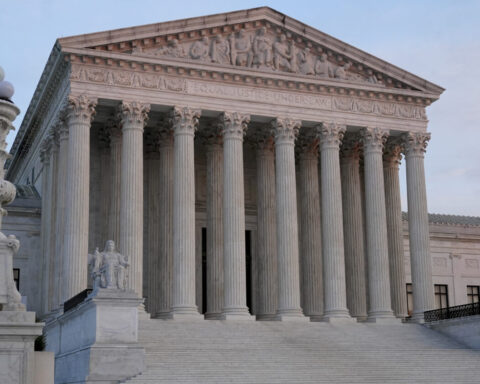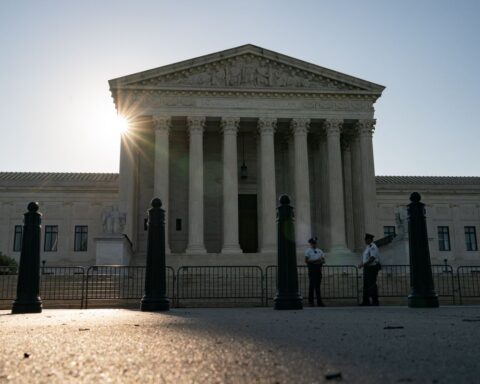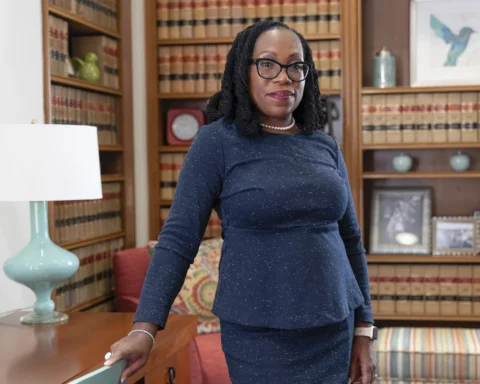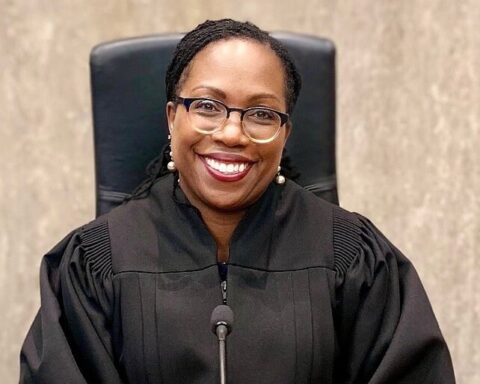A divided Supreme Court granted a request from a group of New York landlords to block a part of the state’s eviction moratorium that bars landlords from evicting certain tenants in the midst of the pandemic. The court’s three liberal justices dissented from the court’s order and would have left the moratorium in place.
The moratorium was set to expire on August 31.
In an unsigned order, the court said it had blocked a part of the state moratorium that allowed a tenant to “self-certify financial hardship.” The provision precludes a landlord from contesting that certification and denies the landlord a hearing.
The court said the scheme “violates the Court’s longstanding teaching that ordinarily ‘no man can be a judge in his own case’ consistent with the Due Process Clause.” The court noted that another provision of the moratorium was not a part of the challenge at hand and would remain in place. That provision allows courts to consider a Covid-related hardship defense in part by assessing a tenant’s income prior to Covid.
Justice Stephen Breyer, joined by Justices Elena Kagan and Sonia Sotomayor dissented, highlighting the fact that the law was set to expire in “less than three weeks.” He said that the landlord’s hardship is “alleviated” because the the law does not stop them from seeking unpaid rent and other damages in a “common-law action.”
He also noted that the state is currently distributing more than $2 billion in aid that can be used in part to pay back rent and alleviate the need for evictions.
Ending the moratorium early, Breyer said, could lead to unnecessary evictions.
“The New York Legislature is responsible for responding to a grave and unpredictable public health crisis,” Breyer wrote, adding that “it must combat the spread of a virulent disease, mitigate the financial suffering caused by business closures, and minimize the number of unnecessary evictions.”
Breyer warned that while the legislature does not enjoy unlimited discretion, he would not “second-guess politically accountable officials’ determination of how best to guard and protect” the people of New York.”
The court’s order concerning the state moratorium comes as the Biden administration — in a separate lawsuit — is fighting to keep a new federal eviction moratorium on the books. By late March, according to government figures, 3.4 million renter households with incomes below $35,000 reported being behind on rent and another 2.5 million own households in the same income range were behind on their mortgage. The US Centers for Disease Control and Prevention, when announcing a new federal moratorium said it was necessary in part due to a surge in the Delta variant.
Both lawsuits were filed by landlords who say they are losing millions of dollars and need to be able to collect rent and recuperate losses.
But the state and federal moratoriums are based on different legal authorities, which means that the courts will take into consideration separate factors when analyzing whether they pass legal muster. New York’s moratorium, for example, stems from the passage of a law, whereas the federal mandate is authorized by the actions of a federal agency, the CDC.
“The apparent basis for the majority’s emergency order does not necessarily call into question the new federal eviction moratorium,” said Steve Vladeck, CNN Supreme Court analyst and professor at the University of Texas School of Law. “The concern raised here was a specific constitutional objection to unique features of how New York’s moratorium is administered; the objections to the federal rule are more about whether the CDC has the federal statutory authority to impose such a rule in the first place.”
Lawyers for the five residential landlords urged the justices to put on hold a section of the state’s Emergency Eviction and Foreclosure Prevention Act of 2020 that allows tenants in the state to block some eviction proceedings.
“This law runs roughshod over property owners’ constitutional rights to procedural due process and free speech, and it should be immediately enjoined—especially since Governor Cuomo has lifted virtually all other pandemic-related restrictions and formally declared an end to the State’s COVID-19 ‘state of emergency,” their lawyers argued in court papers filed before New York Gov. Andrew Cuomo’s resignation. They feared that state officials would move to expand the August 31 deadline.
The landlords’ attorney Randy Mastro released a statement Thursday after the court’s decision
“On behalf of New York’s small landlords, we are extremely grateful to the Supreme Court for reaffirming that, ‘even in a pandemic, the Constitution cannot be put away and forgotten,” Mastro said.
He continued: “We sought emergency relief because New York’s continuing moratorium violated owners’ constitutional rights and left small landlords struggling to survive, with no opportunity even to be heard in court, a fundamental right guaranteed by the U.S. Constitution. Now, all parties will have that right, thanks to today’s Supreme Court decision.”
New York Attorney General Letitia James in a statement before the court’s decision urged the justices to leave the moratorium in place. She said it is set to expire at the end of August and “in the meantime, New York is in the process of distributing billions of dollars of congressionally appropriated rental-assistance benefits to landlords and their tenants, which will render many eviction proceedings unnecessary.”
She said blocking the moratorium “would disrupt the State’s fragile and ongoing recovery from the pandemic by abruptly inundating the courts with eviction proceedings before they are fully equipped to resume such actions.” And James distinguished her case from the federal moratorium by noting that the New York moratorium is a “duly enacted state law” that exercises the State’s “core police powers” whereas the federal moratorium is an agency action undertaken by the CDC.

